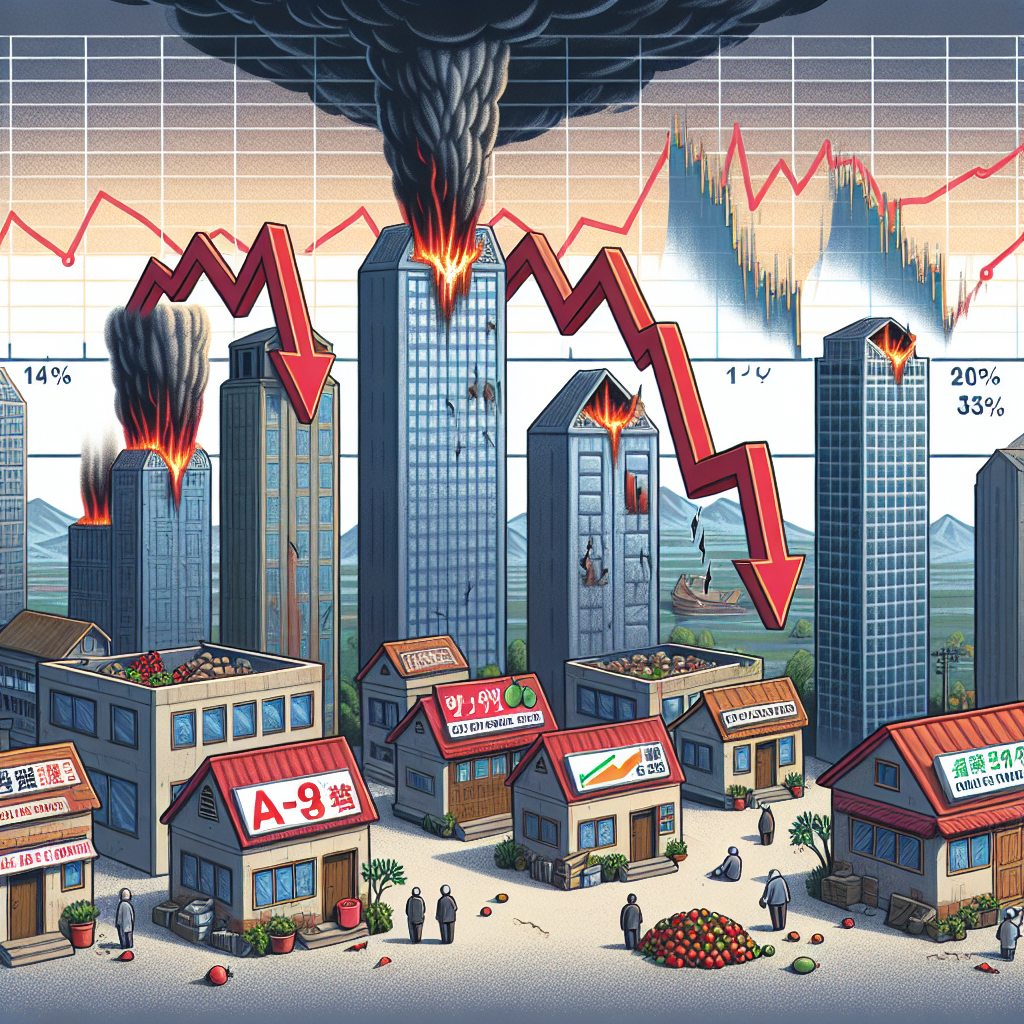On Wednesday, a group of A-share listed companies in the fruit chain (apple supply chain) hit limit-down, with the “three giants of the fruit chain” experiencing consecutive limit-downs for two trading days. Most fruit chain companies have profit margins in the single digits and are facing a 34% tariff, leading to a critical “life-or-death decision.”
According to reports from Financial Times on Wednesday, A-share listed stocks related to Apple almost all hit limit-down. Luxshare Precision dropped by 9.99%, GoerTek fell by 20.02%, Goertek fell by 10%, Sunwoda Electronic dropped by 10.02%, AAC Technologies dropped by 10.01%, Unifive Technology fell by 10%, Glorious Sun Enterprises dropped by 9.99%, Dongshan Precision dropped by 10.01%, and Changying Precision dropped by 19.99%.
The Chinese A-share market has a 10% daily trading limit both for increases and decreases, which is based on the previous trading day’s closing price. Apple concept stocks refer to stocks related to Apple products.
Luxshare Precision, Goertek, and GoerTek are collectively known as the “three giants of the fruit chain.” On the first trading day after US President Trump announced equivalent tariffs on April 3, the “three giants of the fruit chain” hit limit-down.
According to a report from Observer.com, on April 3, Luxshare Precision and Goertek, both fruit chain companies, hit limit-down, while GoerTek dropped nearly 11%. At the same time, companies like Aucko Innovation, Sunwoda Electronic, Tonicorp, FortiWay, Leading Wisdom Manufacturing, and Huanxu Electronics experienced varying degrees of decline. An article from Global Times pointed out that on that day, the market value of A-share fruit chain companies evaporated by over a trillion, making this crisis far more severe than the 2018 trade war.
Global Times’ analysis indicates that when a 34% tariff directly eats into the already meager profit margins of supply chain companies, manufacturers are facing a “life-or-death decision”: either accepting Apple’s pricing demands and struggling on the brink of loss or abandoning Apple orders and confronting the crisis of overcapacity.
Observer.com contacted Goertek as an individual investor, and a staff member stated, “The tariff on the supply chain is unbearable because a 34% tariff has been added, and the profit margin of the supply chain is only a few percentage points. We cannot afford to lose money for him, so the customers will definitely bear this, or the customers of the customers, meaning the end consumers will bear this. Once this burden is passed on to end consumers or customers, it will be a huge blow for the customers in terms of sales volume, revenue, profit, and all financial indicators.”
According to the latest estimate by Morgan Stanley, imposing tariffs on China will increase Apple’s costs by about $8.5 billion annually. Reuters reported citing analysts that if Apple passes on the full tariff cost to consumers, the retail price of the iPhone 16 ProMax in the US will increase from the current $1,599 to $2,300 (approximately 16,750 RMB).
Bloomberg’s Apple product expert Mark Gurman described his views in his latest Power On newsletter: “Assuming the tariff is fully implemented by April 9, Apple faces a major decision: whether to bear the tariff cost, drive suppliers to lower prices, pass on costs to customers, or further adjust the supply chain? I believe Apple will adopt a combination of these four measures.”
A research report from Citic Securities pointed out that despite Apple’s supply chain companies transferring capacity to Southeast Asia and other regions, they struggle to avoid the impact of tariffs. In this round of tariff increases, the Trump administration’s enforcement is much stronger than expected, and most Apple supply chain companies have net profit margins in the single digits, making it difficult to cover the additional tariff costs. If the tax burden ultimately shifts to end consumers, product prices will rise, affecting sales volume, which will then transmit to the upstream supply chain.

